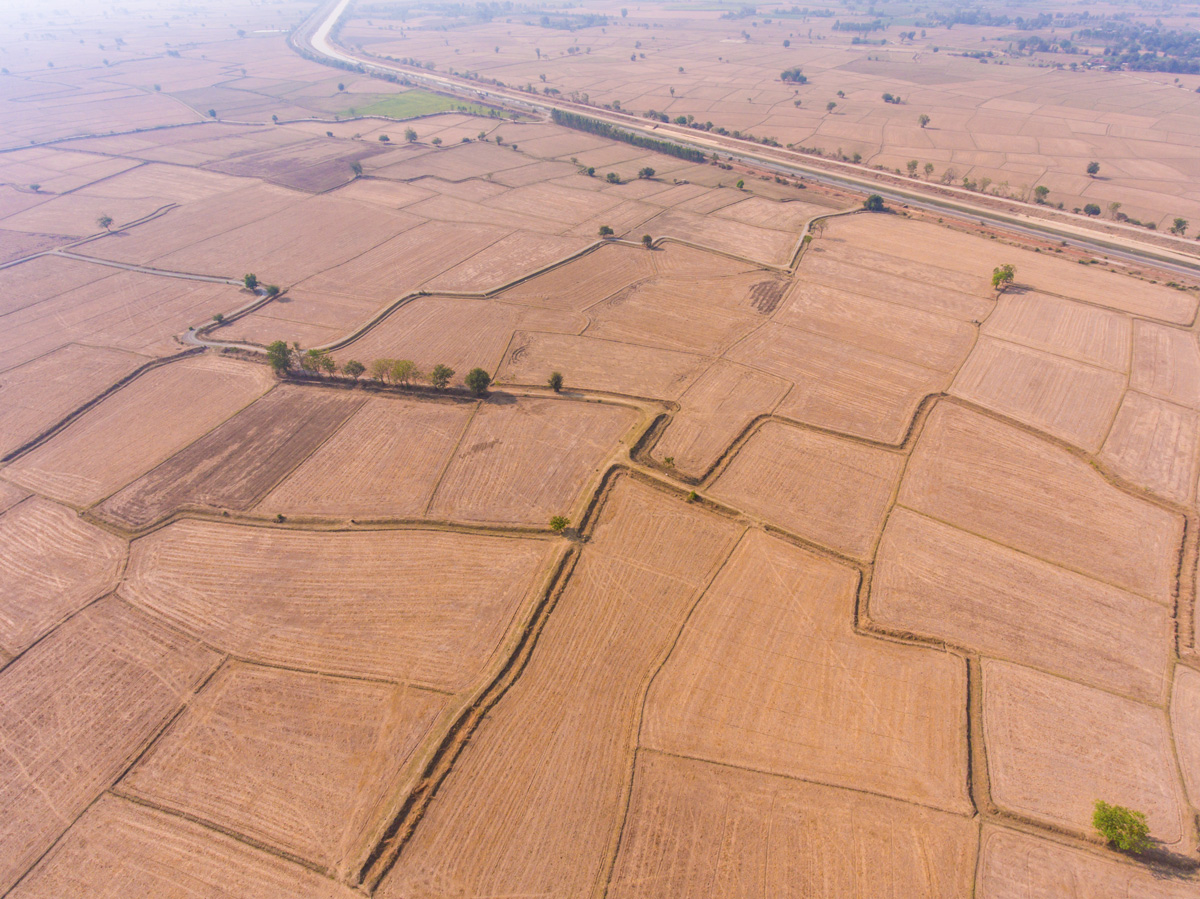
An aerial view of dry rice terraces in Thailand during summer months. The agricultural yields of rice and other crops that provide two-thirds of humanity’s calories will decline by 2100 under high emissions scenarios. Adobe Stock photo by Komjomo
A new study published this week in Nature shows that the global food system is more vulnerable to climate change than previously thought, even as farmers seek to adapt to hotter and drier growing conditions.
Researchers estimate that for every additional degree Celsius of global warming, food production could diminish by an alarming 120 calories per person per day, equating to a 4.4% reduction in daily consumption. They also identify significant risks for large agricultural regions like the Midwest, which is known for its robust corn and soybean production.
"This paper is part of a data-driven explosion of research revealing where and how climate change shapes human wellbeing,” explained co-author Tamma Carleton, an assistant professor in the Department of Agricultural and Resource Economics (ARE) at UC Berkeley. The eight-year research project was led by University of Illinois, Urbana-Champaign professor and ARE alum Andrew Hultgren, PhD '20, and conducted by more than a dozen scientists affiliated with the Climate Impact Lab.
The study draws on observations from more than 12,000 regions across 55 countries to analyze the adaptation costs and impacts on agricultural yields for crops that provide two-thirds of humanity’s calories (wheat, corn, rice, soybeans, barley, and cassava). Unlike previous studies that suggest global warming could increase food production or fail to account for realistic adaptation by farmers, the study is the first to systematically measure how much farmers adjust to changing conditions.
While switching crop varieties and altering planting schedules can mitigate some losses, the authors found that agricultural yields could drop by up to 41% in wealthier regions, and 28% in poorer ones by 2100 under a high emissions scenario. Yields for cassava and sorghum, critical to food security in developing countries, face particularly large declines in the world’s poorest regions. The authors also predict an 8% decrease in global crop yields by 2050, highlighting the immediate impacts of climate change.
“Whether in food, health, or energy systems, we now see that without policy action, adaptation won't eliminate the worst of climate change's impacts,” Carleton said. “In many cases, it's the global poor who are most exposed and the least able to adapt."
Read the full study in Nature.
This story was adapted from material provided by the Stanford Doerr School of Sustainability
